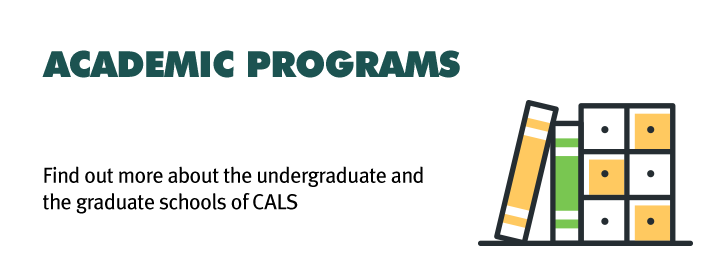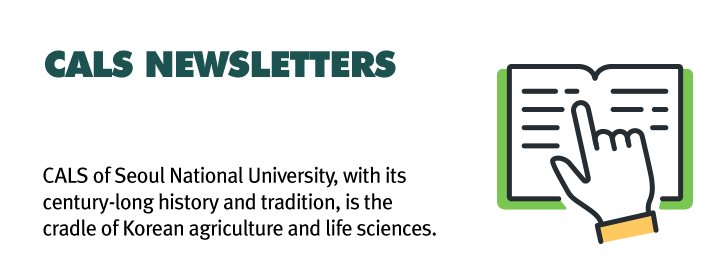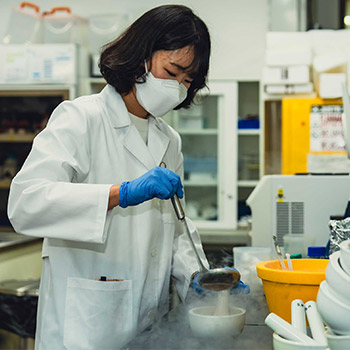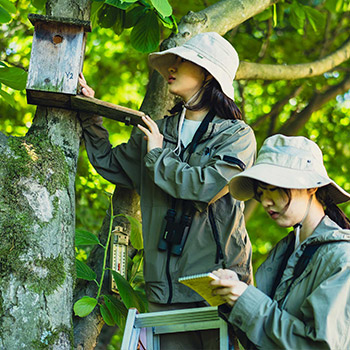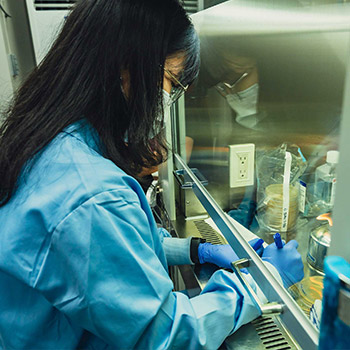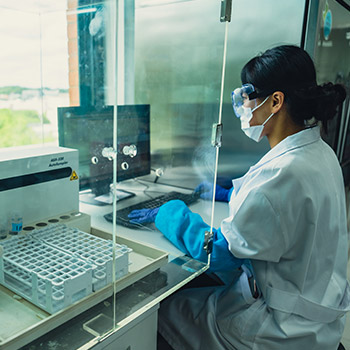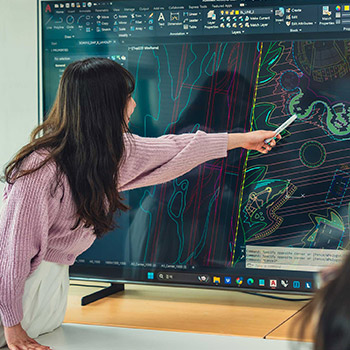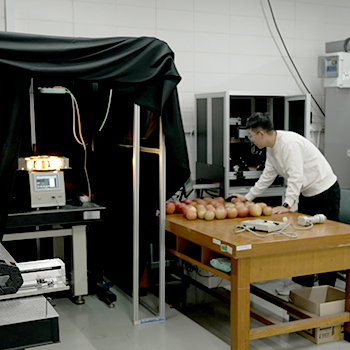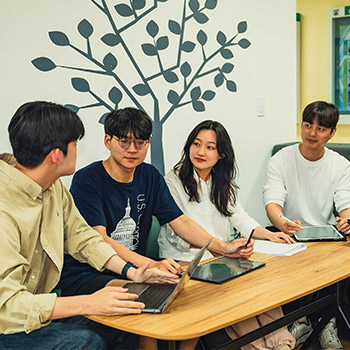On February 20, 2025, Seoul National University (a national university corporation) and the city of Anyang signed a legally binding Memorandum of Agreement (MOA) to open the Gwanak Arboretum to the public and to transfer ownership of the national property at no cost. This agreement marks a major step forward, including permanent public access to the Gwanak Arboretum and the free transfer of state-owned land to SNU. Under the agreement, approximately 90 ha of currently untransferred national land will return to the university’s ownership. Notably, this represents the first tangible progress on land transfer for arboretums and experimental forests since SNU became an incorporated national university in 2011.
We interviewed Professor Sangjun Lim, Director of the Arboretum and a faculty member in Forest Environmental Science, to learn more in depth concerning the major agreement.
- What prompted the agreement between SNU and Anyang City regarding the Gwanak Arboretum?
During the 2011 incorporation of national universities, many facilities that SNU had long used and managed for education and research were not formally transferred to its original ownership. This conditions included the arboretum and experimental forests were among these facilities. SNU has been continuously working to secure ownership through free transfer. Among its many nationwide facilities, negotiations began with Anyang City due to its cooperative relationship with the university. This ultimately led to an agreement on the transfer of the Gwanak Arboretum.
- Could you explain the process behind the signing of this agreement?
Currently, the land used and managed by SNU's experimental forests and arboretums is technically national property under the Ministry of Education. SNU is granted use of this land under a delegated management arrangement. The Ministry of Economy and Finance, which oversees state-owned properties, has indicated willingness to transfer portions of such land free of charge if there is agreement with the local community. Since local governments are legally prohibited from owning national property, Anyang City would have no loss over the transferring ownership. Therefore, both sides entered the negotiation with a positive attitude.
However, Anyang City requested that a portion of the arboretum be permanently open to the public, and such clause was included in the agreement. Currently, the arboretum allows entry only to pre-registered visitors for specific purposes such as educational programs or nature experiences. In the future, it will be opened to the public on a walk-in basis, similar to the National Arboretum. The specifics of how “permanent opening” will be implemented are still being discussed amongst.
- Could you introduce the Gwanak Arboretum, which is now being transferred to SNU free of charge?
The Gwanak Arboretum was the first arboretum established in South Korea. With its creation, South Korea became the 72nd country in the world to have an arboretum. The Gwanak Arboretum is not only historically significant but also ecologically valuable. It is managed with the aim of conserving and protecting plant genetic resources, and the collection and planting history of each tree is meticulously recorded. Many of the plants in the arboretum are so valuable that they are considered proper nouns—unique entities that are irreplaceable—and are even used in international seed exchange programs.
- How far along are discussions regarding the free transfer of other arboretums and experimental forests?
Since SNU's incorporation in 2011, a total of 18,670.8 ha of state-owned land remain untransferred. This includes Chilbosan Experimental Forest (in Suwon and Hwaseong), Taehwasan Experimental Forest (in Gwangju, Gyeonggi-do), and the Southern Experimental Forest (stretching from Jirisan to Baegunsan in Gwangyang, Jeollanam-do). Our goal is to recover at least 10% of the managed land, even if we can't recover all of it.
Discussions about the remaining forests are still in their early stages and face significant obstacles. For example, the Southern Experimental Forest in Gwangyang has faced strong opposition from local communities and politicians, who are interested in turning the area into a national park—an idea that conflicts with SNU’s goals.
According to the Act on the Establishment and Operation of the National University Corporation Seoul National University, national or local governments may transfer national property to the university free of charge when deemed necessary. However, such transfers are not mandatory, and the central government requires consent from local communities before transferring ownership of facilities currently used by SNU. Therefore, this is a long-term issue that will require sustained dialogue with regional stakeholders.
- Why is the free transfer of arboretums and experimental forests to SNU so important?
It’s crucial for the advancement of education and research. One major reason is the inconvenience that arises from not having formal ownership. It’s like renting an apartment—you feel hesitant to put up a nail without your landlord’s permission. Similarly, we face restrictions when installing educational or research-related infrastructure because we’re not the legal owners.
Furthermore, SNU lost its rights to facilities it had used and maintained for decades, simply due to its incorporation creating tension amongst the researchers for the unjust actions.
- The arboretum is currently in a trial period of public access. Are there any issues that have arisen or are anticipated?
Our biggest concern is damage to or mismanagement of the arboretum’s valuable resources. Even during the trial period—despite Anyang City’s support with staff—there were several cases of visitors damaging or picking herbs and trees. We expect such issues to increase once the arboretum is fully open.
The root of the issue lies in a lack of public understanding of the arboretum’s value. For SNU, the Gwanak Arboretum is a place for preserving rare plant resources, where each tree, flower, or herb is of significant scientific value. But many visitors see it as a typical park for recreation and sightseeing. This misunderstanding leads people to pick or take plants home.
Some plants in the arboretum are one-of-a-kind and irreplaceable. If such plants are removed or lost, we must report and get permission from the Ministry of Environment. We hope the public can better understand and help protect the arboretum’s unique ecological resources.
- How does SNU plan to use the Gwanak Arboretum going forward?
SNU intends to focus on education and research. Any public programs for recreation or community engagement will be led by Anyang City. While we may offer limited support if needed, our priority—as clearly stated in the agreement—is academic use. We also want to avoid the path taken by other arboretums in urbanized areas, where recreational use has diminished their scientific role. Our goal is to manage the remaining area of the Gwanak Arboretum systematically, preserving its ecological and historical significance.
- Do you have any final words for members of the College of Agriculture and Life Sciences or the wider SNU community?
Until now, SNU has prioritized building a positive relationship with the local community to facilitate the land transfer. Once the process is complete, we plan to actively develop educational and experiential programs for SNU members to make full use of the arboretum. I encourage students, faculty, and staff to visit and engage with the arboretum.
Also, I ask for your continued interest in the free transfer of other experimental forests. The total arboretum-designated area surrounding Gwanak Mountain and its vicinity spans 1,550.6 hectares. The current discussions involve only about 93.7 ha, with the Anyang portion being 90 ha—just a small part of the whole. Since the incorporation of SNU, land transfer discussions have been delayed for more than a decade, and many faculty who initially advocated for it have retired. As time passes, attention to this issue is fading. I hope this agreement with Anyang City becomes an opportunity to build consensus within the university about the importance of reclaiming these national assets.

